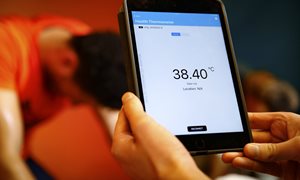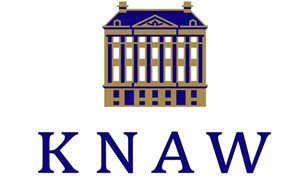
Two researchers from the Radboudumc receive a grant from the NWO within the Open Competition of the Exact and Natural Sciences. They are Thijs Eijsvogels, who studies the heart, and Pieter Leermakers, who studies the kidneys. They will each receive an amount of up to 50,000 euros for their research initiative.
The Open Competition ENW - XS grants from the Netherlands Organization for Scientific Research (NWO) consists of a maximum amount of € 50,000. The grant is intended to enable promising ideas and innovative and risky initiatives within the seven ENW disciplines. The proposed research is groundbreaking and it is not certain in advance whether the intended objective will be achieved. What counts is that each result advances science, both positively and negatively.
Pieter Leermakers: Tracking magnesium in the kidney with a microscope
Magnesium is an important nutrient for the functioning of the human body. The amount of magnesium is precisely regulated, with the kidney determining how much magnesium is excreted through the urine and how much is retained in the body. Because it is currently impossible to look at this process in living organisms, biomedical scientist Pieter Leermakers will develop a customized state-of-the-art research technique in this project that will study this process in living organisms for the first time. This technique will result in a wide range of future applications, ranging from new fundamental knowledge about kidney function to identification of therapies that stimulate the reabsorption of magnesium.
Thijs Eijsvogels: Mapping cardiac damage from extreme exercise
Regular exercise and physical activity improves health and lowers the risk of cardiovascular disease. However, recent studies have shown that extreme exercise can be harmful. Endurance athletes show an increase in signaling substances in the blood that indicate heart muscle damage, while prolonged exercise can cause scarring of the heart. Available research models in humans and animals are not adequate to determine the cause of these negative effects of exercise. Exercise physiologist Thijs Eijsvogels will therefore develop a revolutionary new model in which the effects of exercise can be studied in an innovative heart-on-a-chip model in which cultured heart muscle cells are exposed to exercise in the lab.
More information
Pauline Dekhuijzen

wetenschaps- en persvoorlichter
Related news items

Joint research in regional hospitals New research projects from promotion fund
22 November 2022Four research projects have been honored in the promotion fund of the Radboudumc and four regional hospitals. The research projects, which are a collaboration between CWZ, Jeroen Bosch Hospital, Rijnstate, Sint Maartenskliniek and the Radboudumc will receive a contribution of 240,000 euros.
read more
Your heart rate as a thermometer Research Olympic athletes will be followed up during 4Daagse
18 July 2022Body temperature can be determined from heart rate. This is what research by the Radboudumc among Olympic athletes shows. Athletes can use this method during training to eventually perform better in the heat. The technique is now being further investigated among participants in the 4Daagse.
read more
Grants for research on magnesium deficiency and malaria Vidis for Felix Hol and Jeroen de Baaij
1 July 2022 Radboudumc researchers Jeroen de Baaij and Felix Hol both receive an NWO Vidi grant for their research, respectively on magnesium deficiency in type 2 diabetes and on malaria. read more
Benjamin Wendt wins the Anna Reynvaan Science Prize 2022 prize for research into application of infection prevention measures in district nursing
16 May 2022 On May 12, de Dag van de Verpleging, Benjamin Wendt won the Anna Reynvaan Science Prize 2022. This prize is awarded annually for the best scientific publication by a nurse from the previous year. read more

